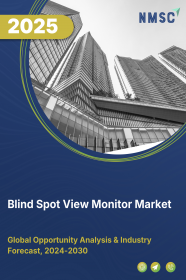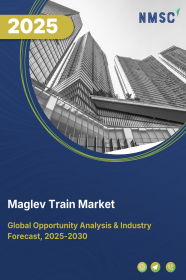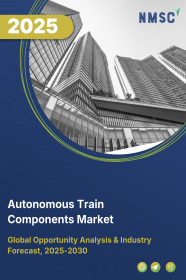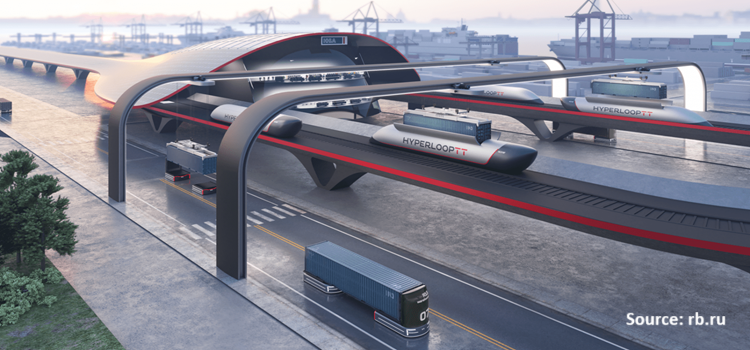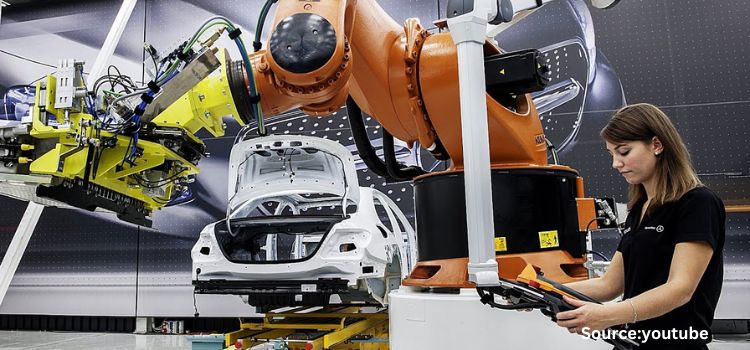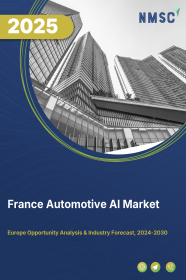
France Automotive AI Market by Component (Hardware, Software, and Services), by Technology (Machine Learning & Deep Learning, Computer Vision, and Natural Language Processing), and by Application (Semi-Autonomous and Fully Autonomous) - Opportunity Analysis and Industry Forecast, 2024– 2030
Industry: Automotive & Transportation | Publish Date: 08-Jan-2025 | No of Pages: 101 | No. of Tables: 71 | No. of Figures: 36 | Format: PDF | Report Code : AT1730
US Tariff Impact on France Automotive AI Market
Trump Tariffs Are Reshaping Global Business
Market Definition
The France Automotive AI Market size was valued at USD 169.4 million in 2023, and is predicted to reach USD 1080.5 million by 2030, at a CAGR of 30.1% from 2024 to 2030. Automotive Artificial Intelligence, or Automotive AI, refers to the application of machine learning and artificial intelligence technologies in the design, development, and operation of vehicles and related systems within the automotive industry. Automotive AI consists a wide range of applications, including autonomous driving, advanced driver assistance systems (ADAS), predictive maintenance, natural language processing for in-car voice recognition, and improving the overall efficiency and safety of vehicles. This technology enables vehicles to perceive their surroundings, make decisions, and interact with drivers and passengers. This further enhances the driving experience, safety, and efficiency of automotive systems.
Surge in Connected Vehicles is Driving the Adoption of Automotive AI
The automotive industry is witnessing a notable increase in the demand for connected vehicles, marking a pivotal driver for the widespread adoption of Artificial Intelligence (AI). Connected vehicles, leveraging advanced communication technologies and the Internet of Things (IoT), enable real-time data exchange and improved user experiences. In response to this trend, AI plays a crucial role in processing and analyzing the extensive data generated by connected vehicles. Machine learning algorithms contribute to insights into user behavior, traffic patterns, and vehicle performance. This integration of AI in connected vehicles results in features such as predictive maintenance, remote diagnostics, and intelligent navigation systems, transforming traditional automobiles into smart, data-driven platforms. As the demand for connectivity continues to rise, the automotive industry is increasingly relying on AI to deliver vehicles that are not only connected but also smarter, safer, and more efficient.
Rising Government Initiatives and Safety Concerns Propel the Market Growth
Governments and regulatory bodies are playing a pivotal role in propelling the growth of the automotive AI market through their emphasis on safety standards and the establishment of regulations. Recognizing the potential benefits of artificial intelligence in enhancing road safety and transportation efficiency, authorities are introducing measures that mandate the inclusion of advanced driver assistance systems (ADAS) and autonomous driving features. These regulations set clear guidelines for testing and certification with addressing crucial aspects such as data privacy and security in the context of AI-driven technologies. International collaboration further leads to standardized frameworks, fostering global adoption and innovation. Additionally, governments offer incentives and subsidies to manufacturers and consumers embracing AI in vehicles, providing economic motivation for the industry. In essence, regulatory support creates a conducive environment, ensuring the safe and structured integration of AI in the automotive sector.
Data Privacy and High Cost Associated with Automotive AI Restrains the Market Growth
Data privacy concerns and high costs are collectively restraining the growth of the automotive AI market. Consumers worry about how their personal data is collected, used, and protected by AI systems in vehicles. This led to demands for stringent data privacy measures. Additionally, the high development and integration costs of AI in vehicles can result in higher vehicle prices. This, in turn, potentially limit market adoption, especially among cost-conscious consumers. Balancing data privacy and cost considerations is crucial for the widespread acceptance and growth of automotive AI technologies.
Integration of Augmented Reality (AR) in Vehicles is Expected to Create Opportunity Growth for the Market
Augmented Reality (AR) in vehicles represents a cutting-edge application of artificial intelligence (AI) that focuses on enriching the driver's experience and safety. By integrating AI algorithms and visual overlays into the driver's field of view, typically through Head-Up Displays (HUDs) on windshields, AR enhances situational awareness on the road. AI-powered object recognition ensures the identification and highlighting of pedestrians, cyclists, and road signs, aiding the driver in navigating complex traffic scenarios. Navigation instructions, traffic alerts, and critical safety information are seamlessly displayed, reducing the need for the driver to shift attention away from the road. This technology also extends to interactive controls, allowing for touchless gestures or voice commands, further minimizing distractions.
Competitive Landscape
The market players operating in the France automotive AI market include NVIDIA Corporation, Alphabet, Inc., Intel Corporation, Microsoft Corporation, IBM Corporation, Qualcomm, Inc., Tesla, Inc., BMW AG, Micron Technology, Xilinx, Inc.
France Automotive AI Market Key Segments
By Component
-
Hardware
-
Software
-
Services
By Technology
-
Machine Learning & Deep Learning
-
Computer Vision
-
Natural Language Processing
By Application
-
Semi-Autonomous
-
Fully Autonomous
REPORT SCOPE AND SEGMENTATION:
|
Parameters |
Details |
|
Market Size in 2023 |
USD 169.4 Million |
|
Revenue Forecast in 2030 |
USD 1080.5 Million |
|
Growth Rate |
CAGR of 27.8% from 2024 to 2030 |
|
Analysis Period |
2023–2030 |
|
Base Year Considered |
2023 |
|
Forecast Period |
2024–2030 |
|
Market Size Estimation |
Million (USD) |
|
Growth Factors |
|
|
Companies Profiled |
10 |
|
Market Share |
Available for 10 companies |
|
Customization Scope |
Free customization (equivalent up to 80 working hours of analysts) after purchase. Addition or alteration to country, regional, and segment scope. |
|
Pricing and Purchase Options |
Avail customized purchase options to meet your exact research needs. |
KEY PLAYERS
-
NVIDIA Corporation
-
Alphabet, Inc.
-
Intel Corporation
-
Microsoft Corporation
-
IBM Corporation
-
Qualcomm, Inc.
-
Tesla, Inc.
-
BMW AG
-
Micron Technology
-
Xilinx, Inc.

















 Speak to Our Analyst
Speak to Our Analyst



